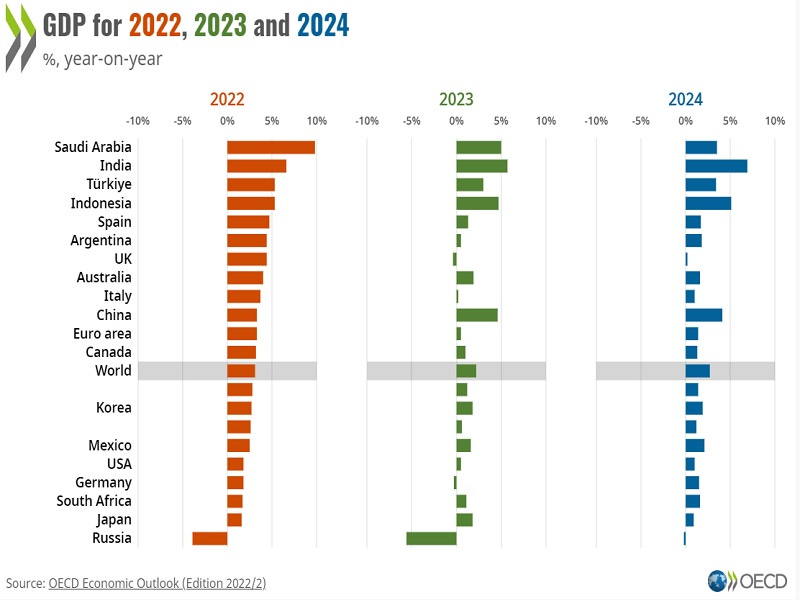The OECD’s Latest Report Showed That India’s Economy Is Growing Twice As Fast As China’s
For as impressive as India’s newfound globally significant role has become, it would be ephemeral if this rising multipolar Great Power didn’t have a solid economic basis upon which to advance its ambitious grand strategy. By ensuring the reliable import of fertilizer and fuel from Russia due to its pragmatic policy of principled neutrality towards the Ukrainian Conflict, India averted the crises that are afflicting its peers across the Global South, thus making its high economic growth possible.
India’s rise as a third pole of influence in the present bi-multipolar intermediary phase of the global systemic transition to multipolarity accelerated as a result of its leadership’s masterful response to the Ukrainian Conflict. Instead of taking sides, Delhi perfected its pragmatic policy of principled neutrality that led to it becoming the kingmaker in the New Cold War, which even the US itself seems to have finally recognized as evidenced by the White House Press Secretary’s praise of its G20 role last week.
For as impressive as its newfound globally significant role has become (which intrepid readers can learn more about here, here, here, here, and here), it would be ephemeral if India didn’t have a solid economic basis upon which to advance its ambitious grand strategy. Therein lies the importance of drawing attention to the Organization for Economic Co-operation and Development’s (OECD) latest report about the global economy, and especially what it says about India.
A summary can be read here, the full version here, and the aforesaid’s chapter about India here. Of relevance to the present analysis is the fact that the OECD reported that India’s economy is growing twice as fast as China’s at 6.6% to 3.3%. They only made one reference to India’s surging imports of discounted Russian oil but the importance of that development shouldn’t be downplayed, nor should the fact that imports of Russian fertilizer also surged, thus making Russia India’s top supplier of both.
By ensuring the reliable supply of these commodities through its practice of principled neutrality to the Ukrainian Conflict in defiance of the unprecedented Western pressure upon it to dump Russia, India was able to avert the food and fuel crises that are afflicting its peers across the Global South. Precisely for that reason, as inspired by its dual guiding concepts of enlightened self-interest and strategic morality, Prime Minister Modi became their voice at the G20 by raising maximum awareness of their plights.
While it’s regrettable that those countries are suffering as a result of the systemic disruptions brought about by the Ukrainian Conflict, or more accurately the sanctions imposed by the US-led West’s Golden Billion, it could have been a humanitarian crisis of epic proportions had India suffered the same. After all, it’s already poised to become the world’s most populous country by sometime next year, and one can only imagine how many people might have died by now had India not secured reliable commodities.
This observation reveals the mutually beneficial nature of India’s continued trade ties with Russia that were made possible at this pivotal moment in global economic history by its pragmatic policy of principled neutrality. The first averted what could have possibly been the world’s worst humanitarian crisis from which it could have struggled to recover anytime soon while the second received reliable revenue that facilitated its financial planning.
Both outcomes were of major strategic importance to each of them, which in turn reinforced their complete trust in one another. Not only that, but as was mentioned earlier in the present analysis, it simultaneously played a key role in India’s economy growing twice as fast as China’s while also establishing the solid economic basis upon which that rising power can advance its ambitious grand strategy. Altogether, there’s no doubt that India’s principled neutrality literally changed the world.




